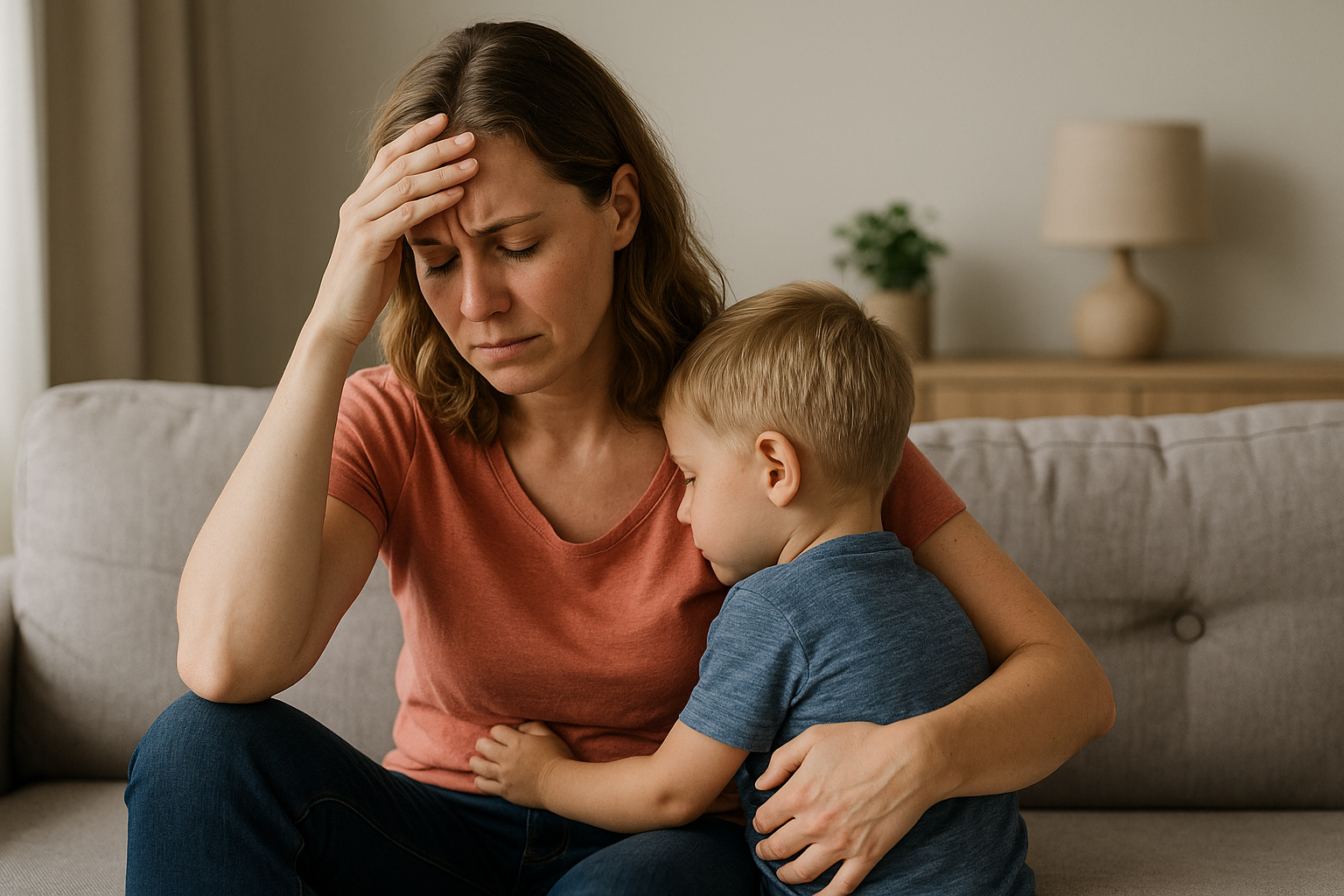Parental guilt is one of the most common—and heavy—feelings that caregivers experience. Whether you’re a new parent or raising teenagers, you’ve likely asked yourself: “Am I doing enough?” or “Did I make the right decision?”
While guilt can sometimes guide us to grow, chronic, unresolved guilt can weigh you down, affect your mental health, and harm your relationship with your child.
The good news is that you can manage parental guilt in a healthy, productive way—and learn to parent from a place of confidence, not shame.
What Is Parental Guilt?
Parental guilt is the feeling that you’re not meeting your own expectations as a parent. It can stem from:
- Comparing yourself to others
- Not spending enough time with your child
- Yelling or losing patience
- Choosing to work outside the home
- Using screen time to get through the day
- Feeling like you “should” be doing more
These thoughts are normal—but they can become overwhelming if not addressed.
Understand That Guilt Is a Signal, Not a Sentence
Guilt is a signal from your inner self. It may point to something you want to improve, or it may come from unrealistic expectations.
Ask yourself:
- Is this guilt based on my values—or on comparison?
- Is this something I can realistically change?
- Am I being too hard on myself?
By examining guilt instead of reacting to it, you gain clarity and control.
Redefine What It Means to Be a “Good Parent”
There is no perfect parent. Social media often shows highlight reels—not the messy, exhausting, real-life moments.
A good parent is not someone who never makes mistakes. It’s someone who:
- Tries their best
- Apologizes when they mess up
- Learns and grows
- Shows up with love, even on hard days
Perfection is not the goal—connection is.
Learn to Forgive Yourself
You will have bad days. You’ll say something you regret. You’ll feel impatient, tired, or disconnected.
And that’s okay.
How to Practice Self-Forgiveness:
- Acknowledge what happened honestly
- Reflect without judgment
- Apologize to your child if needed
- Plan how to handle it differently next time
- Let it go and move forward
Your ability to repair after a rupture is more important than never messing up.
Focus on What You Are Doing Well
When guilt takes over, your mind filters out the good. Take time to recognize your efforts.
Try this:
- Write down three things you did well today
- Celebrate small victories: “I made them laugh,” “We had a peaceful meal,” “I was patient during bedtime”
- Ask your partner or a friend to reflect back your strengths
Shifting your mindset to gratitude builds resilience and perspective.
Set Healthy Boundaries With Comparison
It’s easy to feel like you’re not enough when you compare your parenting to others—especially online.
Protect Yourself By:
- Unfollowing accounts that trigger insecurity
- Limiting time on social media
- Reminding yourself that no one shares their full reality
- Connecting with other parents who are real, honest, and supportive
You are parenting your child, in your situation—not someone else’s.
Accept That You Can’t Do It All
You are only one person. You can’t meet every need, every moment, every time. And that’s not a flaw—it’s a fact.
Prioritize what matters most each day:
- Connection
- Safety
- Love
- Meeting basic needs
Everything else—perfect meals, clean floors, elaborate crafts—can wait or be simplified.
Talk About It
Guilt grows in silence. Talking to someone about how you feel can release the emotional weight.
Options include:
- Trusted friends
- Other parents
- Therapists or support groups
- Parenting forums or communities
You’ll quickly discover: you’re not alone in feeling this way.
Make Room for Joy and Play
Guilt thrives when parenting feels like a constant checklist. Joy breaks the cycle.
Every time you:
- Laugh with your child
- Sing in the car
- Dance in the living room
- Read a silly book
- Enjoy a snack together
…you’re building positive memories that matter far more than perfect routines or spotless houses.
Remember: Your Child Doesn’t Need Perfection
Children don’t need a flawless parent. They need:
- Someone who is present
- Someone who loves them
- Someone who keeps trying
You’re already showing up. That’s what your child will remember most—not the missed playdates or fast food dinners.
You Deserve Compassion, Too
Parental guilt is a sign that you care deeply. But you deserve the same compassion you offer your child.
You don’t have to be perfect. You don’t have to do it all. You just have to love, try, and keep going.
Take a deep breath. Let go of what you can’t change. Celebrate what you are doing.
You’re exactly the parent your child needs.
